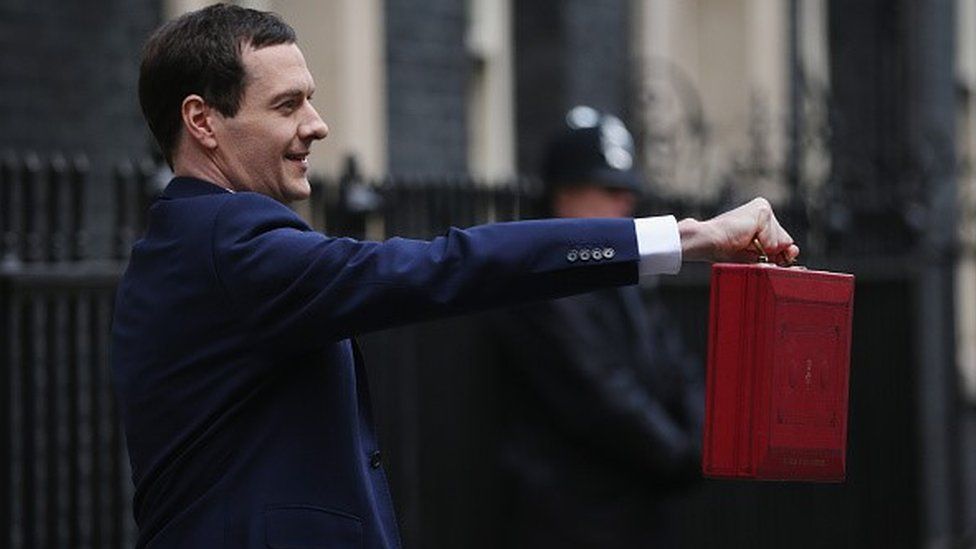George Osborne: How will his time as chancellor be remembered?
- Published

George Osborne has now returned to the back benches, a stunning fall for a man who only ever had one Cabinet post, chancellor of the Exchequer. He had been in charge of the nation's finances since 2010
It has been long assumed that he was using the position, and his ability to promote his supporters, as the launch pad for a move from No 11 to No 10 Downing Street - just as Gordon Brown did.
The referendum result changed all that. His lead role in campaigning against Brexit, with dire warnings about the economic consequences of a vote to leave the EU, pulled the rug from under his own feet.
It seems clear that his previous insistence on austerity does not sit well with new Prime Minister Theresa May's ideas.
Her campaign speech on Monday was probably the death sentence for Mr Osborne's political career.
"We need an economy that works for everyone," she said. "It is apparent to anybody who is in touch with the real world that people do not feel our economy works that way at all."
But how will his six years in the number two job of British politics be remembered?
Growth
Well, George Osborne inherited an economy that had suffered its worst recession in decades and a massive level of government borrowing. His response was to try to slash government spending and raise taxes to bring the deficit down.
Even now, some economists think this was the wrong policy and prolonged the downturn, or at least slowed the recovery.
But the chancellor stuck to his guns and his greatest triumph was that he won that argument, and was able to steer a new course for the British economy as a result.
Growth has been steady and unemployment fell dramatically, all while reducing the size of the civil service and many departmental budgets dramatically.
George Osborne also pushed the government's agenda of a "Northern Powerhouse", trying to rebalance the economy towards manufacturing and exports and reverse the dominance of London and the South East.
But over the years the chancellor has had to soften his fiscal plans.
First, Mr Osborne wanted to balance the budget by 2015, then 2017, 2019 and finally 2020. He used those promises to maintain the confidence of the markets and to outmanoeuvre Labour, but never hit any of them.
Now, with the expected downturn of the economy after the Brexit vote, he has abandoned them altogether.
Having been told for six years that there was "no alternative" it seems there is; to borrow more for longer and to extend austerity for years to come.
'Omnishambles'
Austerity is not dead, nor is the commitment to reduce government spending. It is just that the austerity will have to last much longer and the government will have to borrow even more in the meantime.
For a supposedly slick political operator, some of his Budgets have been messy, not least his 2012 effort dubbed an "omnishambles Budget" by the then Labour leader, Ed Miliband.
The chancellor cut the top rate of tax from 50% to 45% and tried to tax heated Cornish pasties and other hot snacks - the so-called "pasty tax".
The reception of his Budget this year was not much better, with cuts to disability benefits which led to the resignation of Iain Duncan Smith.
Eight years after the credit crunch, we still have interest rates at record lows, quantitative easing, massive borrowing, low productivity growth and now another downturn on the cards.
But perhaps the greatest problem that Mr Osborne found after all those years of austerity, was that it was the most vulnerable who felt they were hit the hardest.
They decided that the economy was not working for them. They did not believe Mr Osborne's warnings about what Brexit might mean, and voted to leave the EU against his advice.